Janina Fisher, Peter Levine, Jamie Marich, Babette Rothschild, Belleruth Naparstek, Robert Scaer, Stephen Porges, Bessel van der Kolk 3-Part Trauma Treatment: Psychotherapy for the 21st Century
817 MB
- FACULTY:
- JANINA FISHER | PETER LEVINE | JAMIE MARICH | BABETTE ROTHSCHILD | BELLERUTH NAPARSTEK | ROBERT SCAER | STEPHEN PORGES, PHD | BESSEL VAN DER KOLK
- DURATION:
- 3 HOURS 23 MINUTES
- FORMAT:
- AUDIO AND VIDEO
- COPYRIGHT:
- APR 19, 2012
Description
Featuring world-renowned experts:
- Bessel A. van der Kolk, M.D.
- Peter A. Levine, Ph.D.
- Babette Rothschild, MSW, LCSW
- Janina Fisher, Ph.D.
- Jamie Marich, Ph.D.
- Belleruth Naparstek, LISW, BCD
- Robert Scaer, M.D.
- Stephen Porges, Ph.D.
In this three-part series, the world’s leading trauma researchers and clinicians share their knowledge and perspectives on the nature of trauma, how it is experienced and how when left untreated continues to be re-experienced. You will learn a paradigm for understanding trauma’s far-reaching psychological and physical consequences, without which, psychotherapeutic interventions remain extremely limited, and at times harmful to our clients. This understanding of trauma and its sequelae is essential to any clinician working in the field of psychotherapy.
Part 1
Join the world’s preeminent trauma experts as they share not only their knowledge and clinical acumen, but their most regrettable (and remarkably similar) clinical mistakes. With warmth and grace, they share the successes and failures that have shaped the current trauma paradigm- including new demands for awareness, attention to the body, visceral safety and mindfulness.
Part 2
Learn from the world’s leading trauma clinicians and researchers a coherent, comprehensive theoretical basis for understanding the physiology and neuroscience that underlie trauma. You learn the most effective and dangerous techniques, the physical nature of trauma and why trauma effects each client differently.
Part 3
This event features the world’s leading experts on trauma treatment discussing the latest and most effective modalities for optimal treatment outcomes. Learn how to effectively work with memories, process traumatic materials, which modalities are the most effective and new diagnostic issues and updates.
Outline
- Trauma Treatment
- Traumatic Stress
- The Nature of Traumatic Memory
- Survival Patterns
- The Three Systems
- Chronically Traumatized Patients
- Guided Imagery
- Attachment and Complex Trauma
Faculty
Janina Fisher, Ph.D., is a licensed clinical psychologist and former instructor at The Trauma Center, a research and treatment center founded by Bessel van der Kolk. Known as an expert on the treatment of trauma, Dr. Fisher has also been treating individuals, couples and families since 1980.
She is past president of the New England Society for the Treatment of Trauma and Dissociation, an EMDR International Association Credit Provider, Assistant Educational Director of the Sensorimotor Psychotherapy Institute, and a former Instructor, Harvard Medical School. Dr. Fisher lectures and teaches nationally and internationally on topics related to the integration of the neurobiological research and newer trauma treatment paradigms into traditional therapeutic modalities.
She is co-author with Pat Ogden of Sensorimotor Psychotherapy: Interventions for Attachment and Trauma (2015) and author of Healing the Fragmented Selves of Trauma Survivors: Overcoming Internal Self-Alienation (2017) and the forthcoming book, Working with the Neurobiological Legacy of Trauma (in press).
Speaker Disclosures:
Financial: Janina Fisher is in private practice. She receives a speaking honorarium from PESI, Inc.
Non-financial: Janina Fisher has no relevant non-financial relationship to disclose.
Dr. Peter Levine holds doctorates in both medical biophysics and psychology. He is the developer of Somatic Experiencing® (SE), a naturalistic body-awareness approach to healing trauma, which he teaches all over the globe. Dr. Levine is also the founder of the Foundation for Human Enrichment and was a stress consultant for NASA during the development of the space shuttle.
An accomplished author, Dr. Levine penned Healing Trauma, Sexual Healing and the bestselling book, Waking the Tiger. He also co-authored with Maggie Kline Trauma Through a Child’s Eyes and Trauma-Proofing Your Kids. His latest book, In an Unspoken Voice: How the Body Releases Trauma and Restores Goodness, is a testament to his lifelong investigation into the connection between evolutionary biology, neuroscience, animal behavior, and more than 40 years of clinical experience in the healing of trauma.
Dr. Levine was honored in 2010 with a Lifetime Achievement Award from the United States Association for Body Psychotherapy (USABP) and is a Senior Fellow at Meadows Behavioral Healthcare.
Speaker Disclosure:
Financial: Peter Levine is the Developer of Somatic Experiencing®. He is the founder and Senior Advisor to the Foundation for Human Enrichment; and Senior Advisor to The Meadows Addiction Treatment Center. Dr. Levine receives a speaking honorarium from PESI, Inc.
Non-financial: Peter Levine is a member of the American Psychological Association; Humanistic Psychological Association; and International Society for Traumatic Stress Studies.
Author
Dancing Mindfulness: A Creative Path to Healing and Transformation
Jamie Marich, PhD, LPCC-S, LICDC-CS, REAT, describes herself as a facilitator of transformative experiences. A clinical trauma specialist, expressive artist, writer, yogini, performer, short filmmaker, Reiki master, TEDx speaker, and recovery advocate, she unites all of these elements in her mission to inspire healing in others. She began her career as a humanitarian aid worker in Bosnia-Hercegovina from 2000-2003, primarily teaching English and music. Jamie travels internationally teaching on topics related to trauma, EMDR therapy, expressive arts, mindfulness, and yoga, while maintaining a private practice in her home base of Warren, OH. Marich is the founder of the Institute for Creative Mindfulness and the developer of the Dancing Mindfulness practice to expressive arts therapy. She is also the co-creator of the Yoga Unchained approach to trauma-informed yoga, and the developer of Yoga for Clinicians.
Marich is the author of EMDR Made Simple: 4 Approaches for Using EMDR with Every Client (2011), Trauma and the Twelve Steps: A Complete Guide for Recovery Enhancement (2012), Creative Mindfulness (2013), Trauma Made Simple: Competencies in Assessment, Treatment, and Working with Survivors, and Dancing Mindfulness: A Creative Path to Healing and Transformation (2015). Marich co-authored EMDR Therapy & Mindfulness for Trauma-Focused Care along with colleague Dr. Stephen Dansiger, which was released with Springer Publishing in 2017. Process Not Perfection: Expressive Arts Solutions for Trauma Recovery, released in April 2019. North Atlantic Books published a revised and expanded edition of Trauma and the 12 Steps, in the Summer of 2020. The New York Times featured Marich’s writing and work on Dancing Mindfulness in 2017. NALGAP: The Association of Gay, Lesbian, Bisexual, Transgender Addiction Professionals and Their Allies awarded Jamie with their esteemed President’s Award in 2015 for her work as an LGBT advocate. The EMDR International Association (EMDRIA) granted Jamie the 2019 Advocacy in EMDR Award for her using her public platform in media and in the addiction field to advance awareness about EMDR therapy and to reduce stigma around mental health.
Speaker Disclosures:
Financial: Jamie Marich is the Founder/Director of Mindful Ohio and The Institute for Creative Mindfulness. She receives royalties as an author for PESI Publishing and Media. Dr. Marich receives a speaking honorarium from PESI, Inc.
Non-financial: Jamie Marich has no relevant non-financial relationship to disclose.
Somatic Trauma Therapy
Babette Rothschild, MSW, LCSW has been a practicing psychotherapist and body-psychotherapist since 1976 and a California Licensed Clinical Social Worker since 1978. She is a member of the International and European Societies for Traumatic Stress Studies, the Association of Traumatic Stress. Babette has trained extensively in Transactional Analysis, Gestalt Therapy, Psychodrama, Eye Movement Desensitization and Reprocessing and Somatic Experiencing, and is a certified Bodynamic Analyst and certified Radix Teacher. She has written extensively on trauma. Her works include 8 Keys to Safe Trauma Recovery; HELP for the HELPER: The Psychophysiology of Compassion Fatigue and Vicarious Trauma (with Marjorie Rand); THE BODY REMEMBERS: The Psychophysiology of Trauma and Trauma Treatment; THE BODY REMEMBERS CASEBOOK: Unifying Methods and Models in the Treatment of Trauma and PTSD; Trauma Essentials: The Go-to Guide.
Speaker Disclosures:
Financial: Babette Rothschild is in private practice. She receives a speaking honorarium from PESI, Inc.
Non-financial: Babette Rothschild has no relevant non-financial relationship to disclose.
Belleruth Naparstek, LISW, BCD: Psychotherapist, author and guided imagery innovator Belleruth Naparstek is the creator of the popular, Time Warner Health Journeys guided imagery audio series. Her first book, Staying Well with Guided Imagery, is a widely used wellness primer. Her second, Your Sixth Sense, has been translated into 8 languages and called one of the most thoughtful and sophisticated looks at intuition in print. Her latest book on imagery and posttraumatic stress, Invisible Heroes: Trauma Survivors and How They Heal, was released in late 2004, won the Spirituality & Health Top 50 Books Award and is out in paperback January of 2006.Speaker Disclosures:
Financial: Belleruth Naparstek is the founder of Health Journeys, Inc. She is an author who receives royalties. Ms. Naparstek receives a speaking honorarium from PESI, Inc.
Non-financial: Belleruth Naparstek has no relevant non-financial relationship to disclose.
Professor
Kinsey Institute, Indiana University and Department of Psychiatry at the University of North Carolina- Chapel Hill
Stephen W. Porges, PhD, is Distinguished University Scientist at Indiana University, where he is the founding director of the Traumatic Stress Research Consortium within the Kinsey Institute. He holds the position of Professor of Psychiatry at the University of North Carolina and Professor Emeritus at the University of Illinois at Chicago and the University of Maryland.
Dr. Porges served as president of both the Society for Psychophysiological Research and the Federation of Associations in Behavioral & Brain Sciences and is a former recipient of a National Institute of Mental Health Research Scientist Development Award. He has published more than 300 peer reviewed scientific papers across several disciplines including anesthesiology, biomedical engineering, critical care medicine, ergonomics, exercise physiology, gerontology, neurology, neuroscience, obstetrics, pediatrics, psychiatry, psychology, psychometrics, space medicine, and substance abuse.
In 1994 Dr. Porges proposed the Polyvagal Theory, a theory that links the evolution of the mammalian autonomic nervous system to social behavior and emphasizes the importance of physiological state in the expression of behavioral problems and psychiatric disorders. The theory is leading to innovative treatments based on insights into the mechanisms mediating symptoms observed in several behavioral, psychiatric, and physical disorders.
He is the author of The Polyvagal Theory: Neurophysiological foundations of Emotions, Attachment, Communication, and Self-regulation (Norton, 2011), The Pocket Guide to the Polyvagal Theory: The Transformative Power of Feeling Safe (Norton, 2017) and co-editor of Clinical Applications of the Polyvagal Theory: The Emergence of Polyvagal-Informed Therapies (Norton, 2018).
Dr. Porges is also the creator of a music-based intervention, the Safe and Sound Protocol™, which currently is used by more than 1000 therapists to improve spontaneous social engagement, to reduce hearing sensitivities, and to improve language processing, state regulation, and spontaneous social engagement.
Speaker Disclosure:
Financial: Stephen Porges is a Distinguished University Scientist at Indiana University; and a professor at the University of North Carolina. Dr. Porges has intellectual property rights, and receives royalties from Integrated Listening Systems (now Unyte). In addition, he holds patent rights licensed to NeuralSolution for the technology embedded in PhysioCam and in technologies embedded in products marketed by Unyte. He is an author for W. W. Norton and receives royalties. Dr. Porges receives a speaking honorarium from PESI, Inc.
Non-financial: Stephen Porges has no relevant non-financial relationship to disclose.
Bessel A. van der Kolk, M.D., is a clinician, researcher and teacher in the area of post-traumatic stress. His work integrates developmental, neurobiological, psychodynamic and interpersonal aspects of the impact of trauma and its treatment.
Dr. van der Kolk and his various collaborators have published extensively on the impact of trauma on development, such as dissociative problems, borderline personality and self-mutilation, cognitive development, memory, and the psychobiology of trauma. He has published over 150 peer reviewed scientific articles on such diverse topics as neuroimaging, self-injury, memory, neurofeedback, Developmental Trauma, yoga, theater, and EMDR.
He is founder of the Trauma Center in Brookline, Massachusetts, and President of the Trauma Research Foundation, which promotes clinical, scientific, and educational projects.
His 2014 #1 New York Times best seller, The Body Keeps the Score: Brain, Mind, and Body in the Treatment of Trauma, transforms our understanding of traumatic stress, revealing how it literally rearranges the brain’s wiring – specifically areas dedicated to pleasure, engagement, control, and trust. He shows how these areas can be reactivated through innovative treatments including neurofeedback, somatically based therapies, EMDR, psychodrama, play, yoga, and other therapies.
Dr. van der Kolk is the past president of the International Society for Traumatic Stress Studies, and professor of psychiatry at Boston University Medical School. He regularly teaches at conferences, universities, and hospitals around the world.
Speaker Disclosures:
Financial: Bessel van der Kolk is a professor of psychiatry at the Boston University School of Medicine. He receives a speaking honorarium from PESI, Inc.
Non-financial: Bessel van der Kolk has no relevant non-financial relationship to disclose.
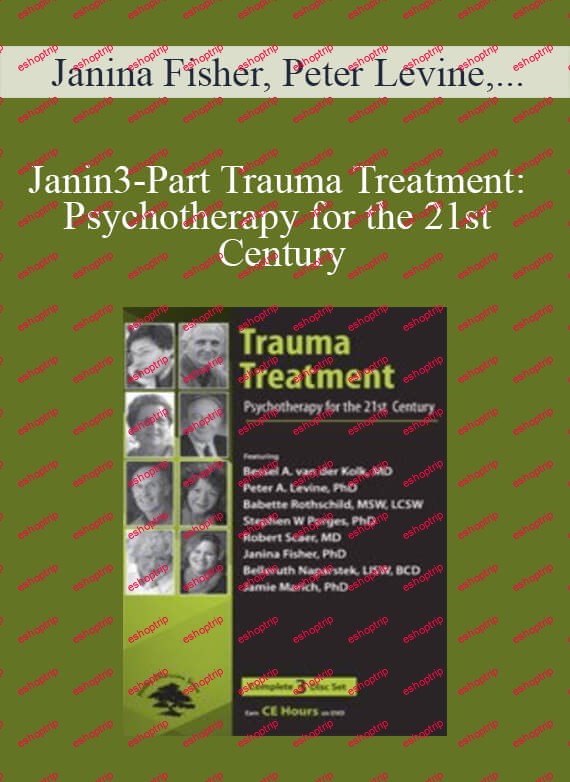

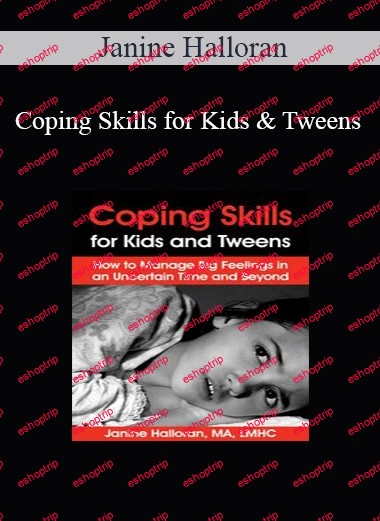


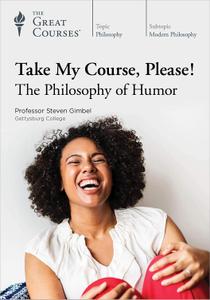
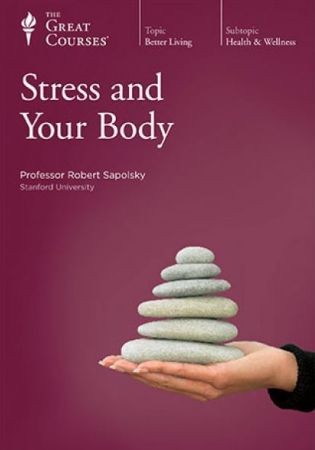
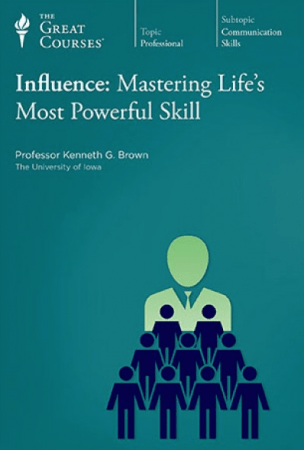



Reviews
There are no reviews yet.